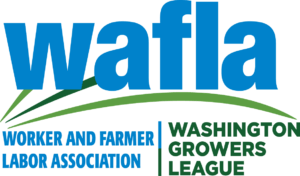Washington cannabis farmworkers seek collective-bargaining rights
Washington cannabis farmworkers seek collective-bargaining rights
By Don Jenkins, Capital Press
OLYMPIA — A Washington lawmaker said her bill to give collective-bargaining rights to cannabis workers could lead to discussions about extending the right to other farmworkers.
House Bill 1141 would apply only to employees of cannabis growers. The sponsor, Rep. Lillian Ortiz-Self, D-Mukilteo, said unionizing cannabis workers was a priority and a beginning.
"I would say it's taking up the fight. The fight to have it be much larger," she said at a hearing Wednesday held by the House Labor and Workplace Standards Committee.
Farmworkers can join or form unions, but the National Labor Relations Act excludes them from having collective-bargaining rights. Some states have moved to give farmworkers the right.
"We recognize the bill could be easily amended to include other farmers during future sessions," Washington Growers League Executive Director Mike Gempler said. "I assume that's where the committee is going ultimately."
The bill would allow union organizers to form collective-bargaining units by turning in cards collected from cannabis workers.
Worker and Farm Labor Association public affairs director Scott Dilley asked the committee to amend the bill to require a secret ballot. After the hearing, he said Ortiz-Self's comments suggested giving collective-bargaining rights to other farmworkers will become an issue.
"It was a thought we had before the hearing. Her comments seem to essentially confirm what our suspicions were," he said.
Cannabis workers testified they need union representation to make their jobs better. The Washington Cannabusiness Association, which represents growers, opposed the bill.
The association's executive director, Vicki Christophersen, said cannabis growers face an oversupply and low prices. "We struggle to understand why this industry is being singled out for this effort," she said.
"At the very core, cannabis cultivation is agriculture and should be on the same playing field as our peers in wheat, hops and apples," she said.
